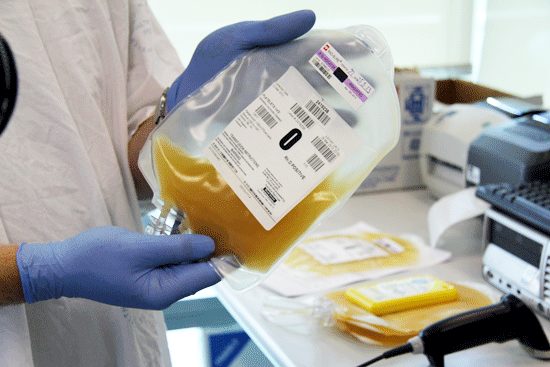According to a study published today in the Canadian Medical Association Journal, allergies to specific foods can be passed via blood transfusions, though such cases are extremely rare.
The research was initiated after an eight year old Canadian boy with no history of food allergies suddenly experienced an anaphylactic reaction to salmon after receiving a transfusion of platelets as part of ongoing chemotherapy treatment. Four days later he had a reaction to peanuts.
Investigators traced the source of the platelets and found that a single donor had multiple severe food allergies including fish and peanuts.
Though extremely rare, researchers found that food allergies can be passed through an antibody that reacts against allergens, immunoglobulin E (IgE). IgE is found in blood platelets.
It should be noted that the boy’s food allergies dissipated over time and there was no trace of the antibody after 4½ months. After six months, the boy was able to resume eating salmon and peanuts.
Dr Julia Upton of The Hospital for Sick Children in Toronto said: “It is very unusual to identify someone who experienced passive transfer of allergy from blood products. Importantly, this condition has an excellent prognosis and typically resolves within a few months.”





